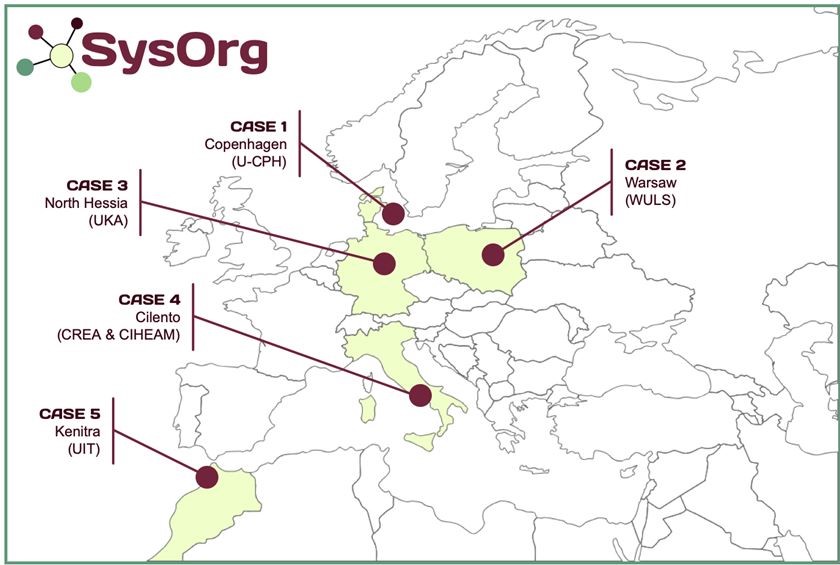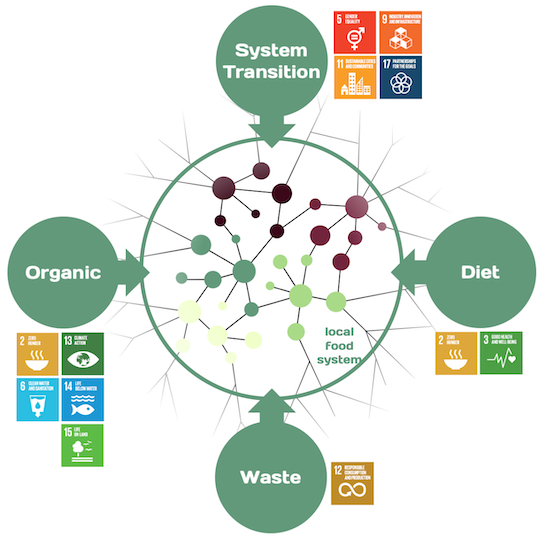Organic agro- food systems as models for sustainable food sys-tems in Europe and Northern Africa
Introduction
SysOrg identifies how pathways to increase sustainable food production and consumption can be successfully designed. This requires a better understanding of food systems, including the multitude of actors involved and the identification of critical points within systems.
This is done by mapping and analysing five case territories (Copenhagen, Cilento, North Hessia, War-saw, Kenitra) in a transdisciplinary way.
Background
Today's food systems are not sustainable: neither from an ecological point of view nor from a socio-economic perspective. We have to cope with major diet-related health problems, hunger on the one hand and overweight and obesity on the other. Intensive agricultural production is one of the main contributors to biodiversity loss and is one of the biggest consumers of freshwater in the world, and according to the FAO, one third of our food is now wasted along the value chain.
The main cause-effect chains are known, but what is missing is how to motivate food system actors to produce and consume more sustainably. Our hypothesis is that there are similar entry points for transitions, although food systems vary widely across regions. These need to be identified in order to derive recommendations for making them more sustainable. Organic food systems can serve as a model here.
Main project activities
Thus, the following questions are addressed from four perspectives: transition, diet, organic food and farming, and food waste.
- What is the understanding of sustainability to drive the transformation towards sustainable food systems?
- How can pathways to increase sustainable food production and consumption across the system be successfully designed?
- What are the reasons, motivations, drivers or barriers for actors to opt for more sustainable solutions?
- What are the promising entry points for developing, consolidating and disseminating organic food and farming, reducing waste and shifting to sustainable diets?
- What are critical points to bring these perspectives together in a systems approach?


Expected results
SysOrg will result in improved and locally adapted strategies and tools for transformation of food systems across Europe and Northern Africa to sustainable, resilient and resource efficient food systems with less environmental impact and high socio-cultural acceptance.
Keywords
System approach; organic & sustainable food systems; transnational
Project consortium
Coordinated by
Lilliana Stefanovic, University of Kassel, Germany
Partners
Ibn Tofail University/Faculty of Sciences, (MA)
University of Copenhagen, (DK)
Warsaw University of Life Sciences, (PL)
Council for agricultural research and economics - CREA, (IT)
FH Münster University of Applied Sciences, (DE)
International Centre for Advanced Mediterranean Agronomic Studies – Mediterranean Agronomic Institute of Bari (CIHEAM-Bari), (IT)
